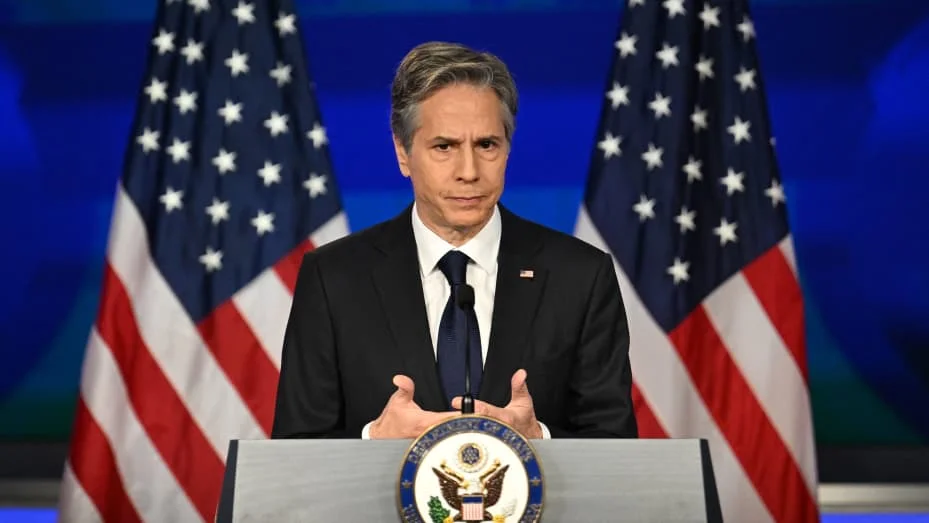In a recent state briefing, US Secretary of State Antony Blinken showcased his playful and diplomatic approach when asked about his movie preferences between the fantasy comedy-drama “Barbie” and the biographical drama “Oppenheimer.” His lighthearted response demonstrated his ability to balance entertainment and thought-provoking narratives.
When posed with the question of choosing between the two contrasting films, Blinken expressed his enthusiasm for both “Barbie” and “Oppenheimer.” Rather than favoring one over the other, he cleverly coined the term “Barbenheimer,” suggesting an amusing blend of the two film titles. Blinken revealed his openness to watching either movie if he had a three-and-a-half-hour window, even proposing a double feature screening in the briefing room for those who hadn’t yet seen the films.
The Secretary of State’s witty reference to “Barbenheimer” elicited laughter from the attendees, showcasing his relatable and multi-faceted persona beyond his diplomatic role.
“Barbie,” directed by Greta Gerwig, has captivated audiences worldwide with its whimsical narrative. The film features Hollywood stars Margot Robbie and Ryan Gosling as iconic characters Barbie and Ken, embarking on a journey of self-discovery beyond Barbieland. Notably, “Barbie” achieved significant global box office success, marking Gerwig as the first female filmmaker to achieve a billion-dollar film solo. The star-studded cast includes names like Issa Rae, Dua Lipa, Simu Liu, Michael Cera, Helen Mirren, John Cena, and Will Ferrell.
Conversely, “Oppenheimer” delves into the historical and political context of physicist Robert J. Oppenheimer, renowned as the “Father of the Atomic Bomb.” The biographical drama delves into the creation of the atomic bomb and its repercussions, boasting a remarkable ensemble cast comprising Cillian Murphy, Emily Blunt, Robert Downey Jr, Florence Pugh, and Matt Damon. The movie has received widespread praise for its depiction of a pivotal historical era and its influence on the global stage.
“Oppenheimer” serves as a poignant reminder of the devastating consequences of nuclear warfare, particularly the American bombings of Hiroshima and Nagasaki in 1945, which played a pivotal role in ending World War II.
Blinken’s casual engagement with cinema reflects his relatability and appreciation for both entertainment and narratives that prompt deeper reflections. His approach underscores his ability to navigate complex diplomatic matters while maintaining a connection to popular culture and historical contexts.




